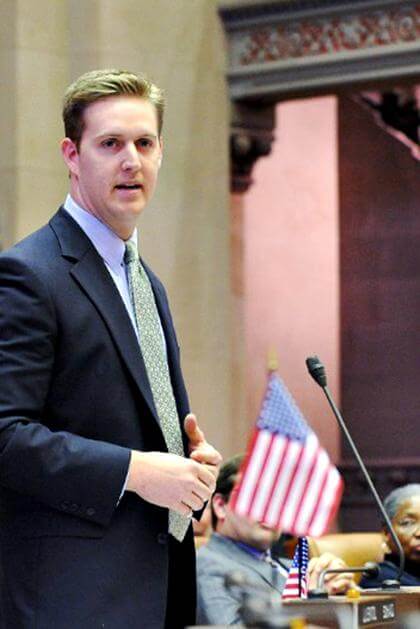By Anna Gustafson
A bill sponsored by state Assemblyman Andrew Hevesi (D-Forest Hills) and passed last week by lawmakers attempts to give legislators a platform on which to build a more comprehensive alternative energy policy for New York, the Queens official said.
Bill A.237B would require utility corporations and other energy-providing entities to annually report to policymakers the exact types, locations and energy outputs of energy produced in their service territories. The goal of this, Hevesi said, is to assess the landscape of current renewable energy use in the state to determine where alternative efforts need to be promoted.
“Any attempt to develop comprehensive, renewable energy policy without first getting a realistic analysis of New York state’s current renewable portfolio is likely to lead to scattershot, uninformed and myopic decisions,” said Hevesi, chair of the Assembly Subcommittee on Renewable Energy and a member of the Assembly Energy Committee.
There is currently no system of reporting in place to monitor the rate of the installation of renewable energy. The Senate still needs to approve the bill and state Sen. Bill Perkins (D-Manhattan) is carrying the bill.
“New York state has the opportunity and the obligation to lead the country in the shift toward use of renewable resources,” Hevesi said. “This bill is a requisite first step toward the development of sound and calculated government policy designed to achieve that end.”
Hevesi has long been pushing the use of renewable energy in New York and he last week joined a panel at Cooper Union to discuss his “feed-in tariff” legislation that would create an incentive program to increase the installation of renewable energy in the state.
“In addition to producing cheaper and more reliable power over the long term, increasing the amount of renewable energy generated in this state will reduce environmental impacts and end our dependence on foreign oil,” Hevesi said. “A feed-in tariff will encourage rapid installation of solar, wind, digestion, hydroelectric, biomass and hydro-kinetic projects.”
Homeowners currently purchase power from a utility which buys power from a generator. This bill would allow a customer to install renewable technologies in their home or farm and establish a long-term contract with the utility to buy their power.
A residence could then sell power to the utility, Hevesi’s office said.
Reach reporter Anna Gustafson by e-mail at agustafson@cnglocal.com or by phone at 718-260-4574.





































